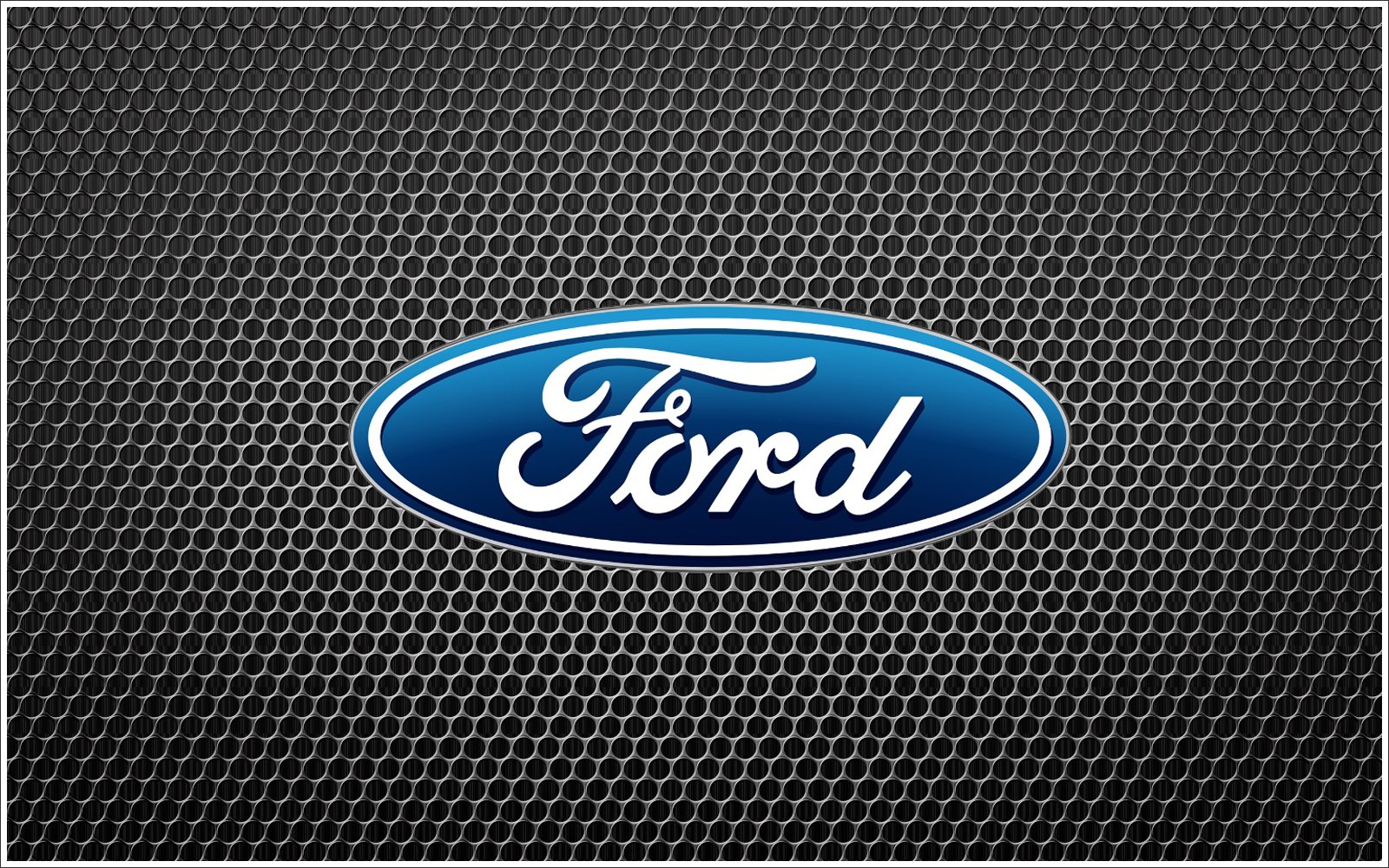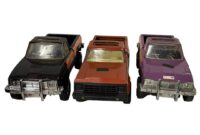Ford F-150 Fleet Trucks For Sale: A Comprehensive Guide for Businesses sale.truckstrend.com
In the demanding world of commercial operations, reliability, versatility, and cost-efficiency are not just desirable traits; they are essential pillars of success. For decades, the Ford F-150 has stood as an icon of American strength and capability, and its fleet variants are no exception. When businesses look for "Ford F-150 Fleet Trucks For Sale," they’re not just seeking a vehicle; they’re investing in a workhorse designed to optimize productivity, streamline operations, and deliver a significant return on investment.
This comprehensive guide delves into everything you need to know about acquiring Ford F-150 fleet trucks, from understanding their inherent value to navigating the purchase process, ensuring your business is equipped with the best tools for the job.
Ford F-150 Fleet Trucks For Sale: A Comprehensive Guide for Businesses
Why Choose the F-150 for Your Fleet? Unpacking the Value Proposition
The Ford F-150’s reputation as America’s best-selling truck isn’t just a marketing slogan; it’s a testament to its enduring quality and adaptability. For fleet managers and business owners, this translates into a powerful argument for its inclusion in their commercial lineup.
Unmatched Durability and Reliability
Ford’s F-Series trucks are engineered for the long haul. Built with high-strength, military-grade aluminum alloy bodies and robust steel frames, the F-150 offers exceptional resistance to corrosion and impacts, reducing downtime and extending vehicle lifespan. This inherent toughness means fewer unexpected repairs and a lower total cost of ownership (TCO) over the vehicle’s operational life. Businesses relying on their trucks day in and day out can trust the F-150 to consistently perform, even under the most strenuous conditions.
Versatility for Every Business Need
One of the F-150’s greatest strengths for fleet applications is its unparalleled configurability. Whether your business requires a basic work truck for hauling materials, a crew cab for transporting teams, or a specialized upfitted unit, the F-150 offers a solution.
- Cab Styles: Regular Cab (2-door), SuperCab (extended cab with suicide doors), and SuperCrew (4-door, full-size rear seats) cater to different personnel transport needs.
- Bed Lengths: Options typically include 5.5-foot, 6.5-foot, and 8-foot beds, allowing for varied cargo capacities.
- Trim Levels: While retail buyers often opt for luxury trims, fleet purchases frequently focus on the more utilitarian XL and XLT trims, which offer essential features without unnecessary frills, balancing capability with cost-effectiveness.
- Drivetrain: Both 2WD and 4WD options ensure your fleet can tackle urban jobs or navigate challenging off-road worksites.

Superior Payload and Towing Capabilities
At the heart of any work truck is its ability to carry and pull. The F-150 consistently leads its class in available payload and towing capacity, making it an indispensable asset for construction, utilities, landscaping, and countless other industries. With various engine options and towing packages, fleet managers can spec trucks precisely to their operational requirements, ensuring they can haul heavy equipment, trailers, and materials without compromise.
Advanced Technology and Connectivity
Modern fleets demand more than just brute strength; they require intelligence. Ford F-150 fleet trucks are equipped with technologies designed to enhance safety, efficiency, and connectivity.
- Ford Telematics™: This integrated system provides crucial data on vehicle location, driver behavior, fuel consumption, and maintenance needs, empowering fleet managers to optimize routes, reduce idle time, and proactively schedule service.
- SYNC® Infotainment: Keeps drivers connected and informed, often featuring navigation and hands-free communication.
- Driver-Assist Features: Technologies like Pre-Collision Assist with Automatic Emergency Braking, Lane-Keeping System, and Blind Spot Information System (BLIS) with Trailer Coverage contribute to a safer work environment and potentially lower insurance costs.
Fuel Efficiency and Sustainable Options
With fuel costs being a significant operational expense, the F-150 offers a range of powertrains designed for efficiency. From the efficient EcoBoost V6 engines to the innovative PowerBoost™ Full Hybrid, businesses can select options that minimize their fuel footprint. Furthermore, the all-electric F-150 Lightning Pro represents a groundbreaking step for fleets looking to electrify their operations, offering zero tailpipe emissions, lower operating costs, and impressive performance.
Strong Resale Value
The F-150’s popularity and reputation for longevity translate into excellent resale value. For fleet managers, this means a higher return on their initial investment when it’s time to cycle out older vehicles, further contributing to a lower TCO.
Key Considerations When Purchasing F-150 Fleet Trucks
Acquiring fleet vehicles is a strategic decision that requires careful planning. Here are critical factors to consider when you’re in the market for Ford F-150 fleet trucks for sale.
1. Conduct a Thorough Needs Assessment
Before looking at specific models, define precisely what your fleet needs.
- Primary Tasks: What will the trucks be used for? Hauling materials, transporting crews, towing heavy equipment, specialized service calls?
- Payload & Towing Requirements: Calculate the maximum weight your trucks will need to carry or pull.
- Operating Environment: Will they be on paved roads, construction sites, or off-road terrain? This influences drivetrain (2WD vs. 4WD) and tire choices.
- Personnel Capacity: How many people need to be transported regularly? This dictates cab style.
- Equipment Storage: What tools or specialized gear need to be stored securely and accessibly? This impacts bed length and the need for upfitting.
2. Budgeting and Financing Strategies
Understanding the full financial picture is crucial.
- Upfront Costs: Consider the purchase price, taxes, and initial registration fees.
- Total Cost of Ownership (TCO): Look beyond the sticker price. TCO includes fuel, maintenance, insurance, depreciation, and potential downtime. Ford F-150s generally excel here due to their reliability and strong resale value.
- Financing Options:
- Purchasing: Outright cash purchase or traditional loans. Offers ownership and asset depreciation benefits.
- Leasing: Can offer lower monthly payments, predictable expenses, and the flexibility to upgrade vehicles more frequently. Often preferred for tax advantages or when capital preservation is a priority.
- Fleet Lines of Credit: Specialized financing solutions for businesses acquiring multiple vehicles.
3. Strategic Configuration Choices
Matching the truck’s configuration to its intended use is paramount for efficiency and cost control.
- Engine Options:
- 3.3L Ti-VCT V6: A reliable base engine for lighter-duty applications.
- 2.7L EcoBoost V6: Good balance of power and fuel efficiency for many general fleet tasks.
- 3.5L EcoBoost V6: Ideal for heavy towing and hauling.
- 5.0L Ti-VCT V8: Traditional V8 power for robust work.
- 3.5L PowerBoost Full Hybrid V6: Excellent fuel economy, Pro Power Onboard (generator functionality) for worksite power, and significant towing capacity.
- F-150 Lightning Pro (EV): For fleets committed to electrification, offering instant torque, lower fuel/maintenance costs, and Pro Power Onboard capabilities.
- Trim Levels: For fleets, the XL and XLT trims offer the best value. They provide essential features like vinyl flooring (easy to clean), durable cloth seats, and necessary power options without the premium costs of higher trims.
- Specialized Packages: Look for packages like the FX4 Off-Road Package (for rough terrain), Trailer Tow Package, or Snow Plow Prep Package to ensure the truck is ready for specific demands.
4. Upfitting and Customization
Many fleet operations require specialized equipment or storage solutions. Ford F-150s are highly adaptable for upfitting.
- Service Bodies: Enclosed compartments for tools and parts, common for utilities and service companies.
- Utility Beds: Flatbeds with storage compartments, popular for construction and landscaping.
- Ladder Racks, Toolboxes, Liftgates: Essential additions for various trades.
- Interior Modifications: Seat covers, additional lighting, communication equipment mounts.
Work with a reputable upfitter who understands your specific industry needs and can ensure modifications comply with weight distribution and safety standards.
5. Maintenance and Service Plans
Minimizing downtime is critical for fleet profitability.
- Ford Protect Extended Service Plans: Offer comprehensive coverage beyond the standard warranty.
- Fleet Service Programs: Many Ford dealerships offer dedicated fleet service bays, priority scheduling, and discounted labor rates. Inquire about these programs to ensure your trucks receive timely and efficient maintenance.
Where to Find Ford F-150 Fleet Trucks For Sale
Identifying the right source for your fleet acquisition can significantly impact pricing, support, and the overall purchasing experience.
1. Authorized Ford Dealerships (Fleet Departments)
This is typically the primary and most recommended channel for new F-150 fleet trucks.
- Dedicated Fleet Sales Representatives: These specialists understand business needs, volume discounts, and fleet incentives.
- Access to Latest Models and Technology: Ensures your fleet is equipped with the newest advancements.
- Custom Ordering: Ability to spec vehicles precisely to your requirements directly from the factory.
- Comprehensive Support: Post-sale service, warranty claims, and access to genuine Ford parts.
- Ford Commercial Vehicle Center (CVC) Dealers: These dealerships are specially equipped to handle the unique needs of commercial customers, offering extended service hours, parts inventory, and knowledgeable staff.
2. Used Truck Market
For businesses on a tighter budget or those needing immediate availability, the used market can be an option.
- Pros: Lower initial cost, faster depreciation has already occurred.
- Cons: Higher mileage, potentially more wear and tear, shorter remaining warranty (if any), limited customization options.
- Sources:
- Used Car Sections of Ford Dealerships: Often have certified pre-owned options.
- Commercial Vehicle Auctions: Can offer volume deals, but require careful inspection.
- Online Marketplaces: Websites specializing in commercial vehicles or general automotive listings.
- Fleet Remarketing Companies: Businesses that sell off their old fleet vehicles.
3. Fleet Remarketing and Auctions
Larger organizations or government entities often cycle out vehicles through specialized auctions. While potentially offering lower prices, these channels require due diligence in vehicle inspection and understanding auction processes.
4. Online Marketplaces and Brokers
A growing number of online platforms and brokers specialize in connecting businesses with fleet vehicles. These can be useful for comparing options and potentially finding unique deals, but always verify the legitimacy of the seller and the vehicle’s condition.
The Purchase Process & Practical Advice
Navigating the acquisition of fleet vehicles requires a structured approach.
Step-by-Step Guide:
- Define Requirements (Revisit Needs Assessment): Solidify your exact specifications for each truck.
- Research Options & Pricing: Gather information on available models, trims, and estimated pricing ranges.
- Contact Fleet Sales Representatives: Reach out to several authorized Ford dealerships’ fleet departments.
- Obtain Detailed Quotes: Request itemized quotes for your specified configurations, including any fleet discounts, upfitting costs, and financing options.
- Compare and Negotiate: Don’t hesitate to leverage quotes from different dealers. For volume purchases, significant negotiation room often exists. Inquire about volume incentives, fleet programs, and maintenance packages.
- Consider Financing/Leasing: Work with your chosen dealer’s finance department or your bank to secure the best terms.
- Finalize Purchase & Delivery: Review all paperwork meticulously before signing. Coordinate delivery schedules, especially for custom-ordered or upfitted vehicles.
Practical Advice for Fleet Managers:
- Think TCO, Not Just Purchase Price: A cheaper truck upfront can cost more in fuel, maintenance, and downtime over its lifespan. The F-150’s strong TCO makes it a smart investment.
- Leverage Fleet Programs: Ford offers various incentives and programs specifically for businesses. Ensure your fleet sales representative informs you of all applicable discounts.
- Understand Lead Times: Custom-ordered or heavily upfitted vehicles can have significant lead times. Plan your purchases well in advance to avoid operational gaps.
- Don’t Skimp on Safety Features: While cost-conscious, consider safety features that protect your drivers and assets, potentially reducing insurance premiums and liability.
- Partner with Reliable Upfitters: If customization is needed, work with certified and experienced upfitters who can ensure quality and compliance.
- Test Drive (if practical): For larger fleets, it might be beneficial to test drive a representative model to ensure it meets driver comfort and operational needs.
Potential Challenges and Solutions:
- Supply Chain Delays: In recent years, global supply chain issues have impacted vehicle availability.
- Solution: Order well in advance, maintain open communication with your dealer, and consider building a buffer into your fleet replacement schedule.
- Skilled Labor for Upfitting: Finding qualified upfitters can be challenging.
- Solution: Partner with Ford Commercial Vehicle Center dealers who often have preferred upfitters or can recommend reputable local businesses.
- Managing a Diverse Fleet: Integrating new vehicles into an existing, diverse fleet can be complex.
- Solution: Where possible, standardize vehicle types and configurations to simplify parts inventory, maintenance training, and driver familiarity.
Ford F-150 Fleet Trucks For Sale: Estimated Pricing & Configurations
Providing exact pricing for fleet vehicles is challenging due to varying incentives, volume discounts, regional differences, and custom configurations. However, the table below offers estimated MSRP ranges for common fleet-oriented Ford F-150 configurations. Please note that actual fleet pricing will typically be lower than these MSRPs due to corporate discounts and volume purchases. These figures are for base models before any significant options, packages, or upfitting.
| Model/Configuration (Estimated Base) | Estimated MSRP Range (USD) | Key Fleet Features (Common) | Common Fleet Use Cases |
|---|---|---|---|
| F-150 XL Regular Cab, 8′ Box, 2WD | $36,000 – $39,000 | 3.3L V6, Vinyl Floors, Basic Infotainment, Steel Wheels | Construction, Utilities, Delivery, Light Hauling |
| F-150 XL SuperCab, 6.5′ Box, 2WD | $40,000 – $43,000 | 3.3L V6 (or 2.7L EcoBoost opt.), Room for 4-5 personnel, Vinyl Floors | Service & Maintenance Crews, Foreman Trucks |
| F-150 XL SuperCrew, 5.5′ Box, 2WD | $43,000 – $46,000 | 2.7L EcoBoost V6 (opt.), Full 4-door, Ample Passenger Space, Vinyl Floors | Crew Transport, Field Supervision, Sales/Service |
| F-150 XLT SuperCrew, 6.5′ Box, 4WD | $50,000 – $55,000 | 3.5L EcoBoost V6 (opt.), Cloth Seats, Enhanced Infotainment, 4WD Capability | All-Weather Operations, Heavier Towing, Remote Site Access |
| F-150 XL PowerBoost Hybrid, 6.5′ Box, 2WD | $50,000 – $55,000 | 3.5L PowerBoost Hybrid, Pro Power Onboard (2.4kW), Excellent Fuel Economy | Mobile Workshops, Emergency Services, Utility Crews |
| F-150 Lightning Pro (EV), 5.5′ Box, AWD | $55,000 – $65,000 | All-Electric, Pro Power Onboard (2.4kW or 9.6kW), Instant Torque, Low Running Costs | Urban Delivery, Green Initiatives, Companies with Charging Infrastructure |
Note: These prices are estimates for base models and do not include destination charges, taxes, options, packages, or upfitting costs. Actual fleet pricing is negotiated based on volume and specific fleet programs.
Frequently Asked Questions (FAQ)
Q1: What is the main difference between a retail F-150 and a fleet F-150?
A1: The core vehicle is largely the same, but fleet F-150s are typically purchased in volume through dedicated fleet departments at dealerships. This allows access to special fleet pricing, incentives, and tailored support services (like Ford Telematics integration and specialized maintenance programs) not usually available to individual retail buyers. Fleet trucks often focus on lower-tier trims (XL, XLT) optimized for durability and function over luxury.
Q2: Do Ford F-150 fleet trucks come with a warranty?
A2: Yes, new Ford F-150 fleet trucks come with the standard Ford New Vehicle Limited Warranty, which typically includes a Bumper-to-Bumper warranty for 3 years/36,000 miles and a Powertrain warranty for 5 years/60,000 miles. Businesses can also purchase extended service plans (Ford Protect) for additional coverage.
Q3: Can I lease Ford F-150 fleet trucks instead of buying them?
A3: Absolutely. Leasing is a very popular option for fleets as it can offer lower monthly payments, predictable expenses, potential tax advantages, and the flexibility to cycle into newer vehicles more frequently. Ford Credit offers various commercial leasing programs tailored to business needs.
Q4: How do I get a fleet discount for F-150s?
A4: Fleet discounts are typically volume-based. Businesses need to register their fleet with Ford (often through a fleet sales manager at a dealership) and meet certain purchase thresholds (e.g., purchasing a minimum number of vehicles within a specific timeframe). These discounts are then applied to the negotiated price.
Q5: What’s the typical lead time for a fleet order of F-150s?
A5: Lead times can vary significantly based on vehicle configuration, current demand, supply chain conditions, and whether the truck requires extensive upfitting. Simple, common configurations might be available relatively quickly, while highly customized or factory-ordered trucks could take several weeks to many months. It’s crucial to discuss lead times directly with your fleet sales representative.
Q6: Are there electric F-150 options available for fleets?
A6: Yes, the Ford F-150 Lightning Pro is specifically designed for fleet and commercial customers. It offers all the benefits of an electric vehicle (lower fuel costs, reduced maintenance, zero emissions) combined with the F-150’s legendary capability, including features like Pro Power Onboard for worksite power.
Q7: What is Ford Telematics™ and how does it benefit my fleet?
A7: Ford Telematics™ is a cloud-based software platform that integrates directly with eligible Ford vehicles. It provides real-time data on vehicle location, speed, idle time, fuel consumption, driver behavior, and diagnostic alerts. This data empowers fleet managers to optimize routes, improve driver safety, reduce operating costs, schedule proactive maintenance, and enhance overall fleet efficiency.
Conclusion
The Ford F-150 has earned its stripes as the backbone of countless businesses across North America. When considering "Ford F-150 Fleet Trucks For Sale," you are looking at more than just a purchase; you are making a strategic investment in your company’s operational efficiency, productivity, and long-term financial health. By understanding the F-150’s inherent strengths, meticulously planning your acquisition based on specific needs and budget, and leveraging the resources available through Ford’s dedicated fleet programs, businesses can equip themselves with a powerful, reliable, and cost-effective fleet that drives success for years to come. The right F-150 isn’t just a truck; it’s a vital partner in your business’s journey.



